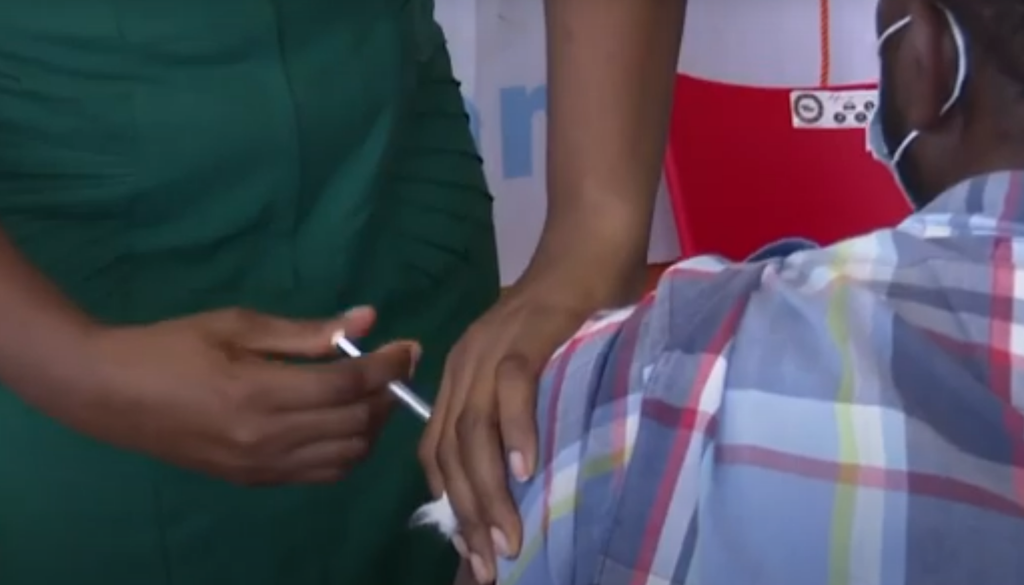Researchers from Oxford and Ghana have shown that small cash incentives increased COVID-19 vaccine uptake in rural Ghana. The findings, published in Nature Medicine, could offer a new strategy for enhancing health interventions in Africa.

The recent COVID-19 pandemic highlighted the challenges associated with implementing vaccination campaigns equitably. There were significantly lower vaccination rates in African countries than the rest of the world (41 COVID-19 vaccine doses per 100 population, compared to 154 for the rest of the world by 4 July 2022), despite adequate supplies in many countries.
Previous studies in Europe and North America have shown that cash incentives increase vaccination rates. So, the research team sought to understand whether cash incentives could have improved COVID-19 vaccination uptake and narrowed the vaccination gap between Africa and the rest of the world.
The researchers from the University of Ghana and Oxford Population Health’s Health Economics Research Centre (HERC) designed a randomised controlled trial that recruited 5,900 participants from six rural districts in Ghana to one of four interventions: placebo (a video about solar panels), a standard health message video about COVID-19 vaccinations, a high cash incentive (80 Ghanaian cedis, worth around US$10) and a low cash incentive (24 Ghanaian cedis, or US$3).
The study, which was supported by the NIHR Oxford Biomedical Research Centre (BRC), measured participants’ intention to get a COVID-19 vaccination immediately after the intervention, self-reported vaccination (two months after intervention), and verified vaccination status.
The study was timed to correspond with the rollout of COVID-19 vaccination campaigns launched by the District Health Offices in Ghana. COVID-19 vaccinations were available to all of the 320 villages included in the study.
Key findings:
- Participants who received a cash incentive were 9% more likely to express an intention to get a COVID-19 vaccination when compared with participants who received the placebo.
- Participants who received a cash incentive were 3.5% more likely to self-report having received a vaccination two months after receiving the cash incentive when compared with participants who received the placebo.
- For participants whose vaccination status was verified, 36.6% of those offered a cash incentive received at least one dose of a COVID-19 vaccination compared with 30.3% of participants who received the placebo.
- The low cash incentive had a particularly large positive effect on COVID-19 vaccine uptake. Participants who received the low cash incentive were 9% more likely to have a verified vaccination status when compared with participants who received the placebo.
- The standard informative health message video about the COVID-19 vaccination had no effect on participants’ intention to get a vaccination.
- There was no evidence of a ‘spillover effect’; people not in the trial, but living close to study participants who received cash incentives, were neither more nor less likely to get vaccinated themselves.
Professor Raymond Duch, of the University of Oxford’s Nuffield College, said “Our study demonstrates that small cash incentives may improve the success of health intervention programmes in Africa, such as vaccination uptake.
“Further research is needed to fully understand why smaller incentives had a greater effect than higher cash incentives, and how the behaviour of people living in rural Ghana compares with people living in other rural areas of African countries. This may help us to learn more about the factors linked to health-related behaviours and help us to improve many more long-term health outcomes across Africa.”

Professor Philip Clarke (pictured, left), Director of HERC, said “Understanding the barriers and drivers of participation in health and disease-prevention programmes for people living in low-income countries is a key factor in providing targeted support and reducing persistent health inequalities. The results of this study will help us in our efforts to ensure we maximise the potential of life-saving interventions such as vaccines.”
This study is one of the few studies of financial incentives for vaccinations that has measured whether participants actually received a vaccination. The results provide important insight for the rural Ghanaian population and the researchers estimate that the findings may be applicable to around half of the overall African population living in rural settings.